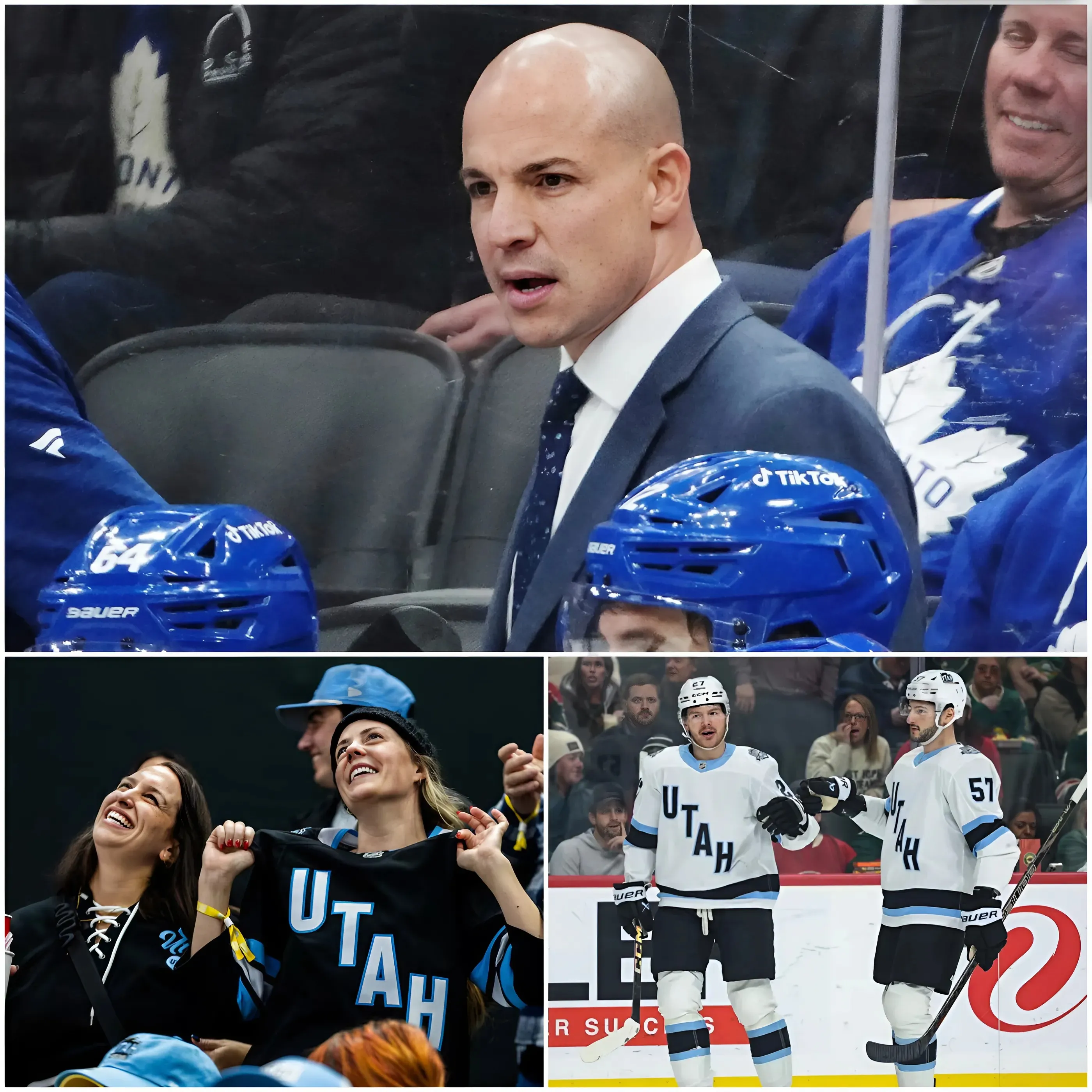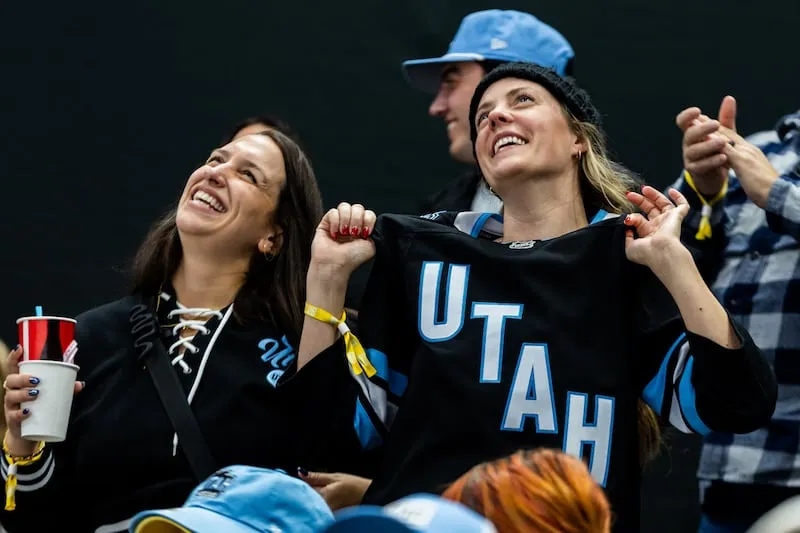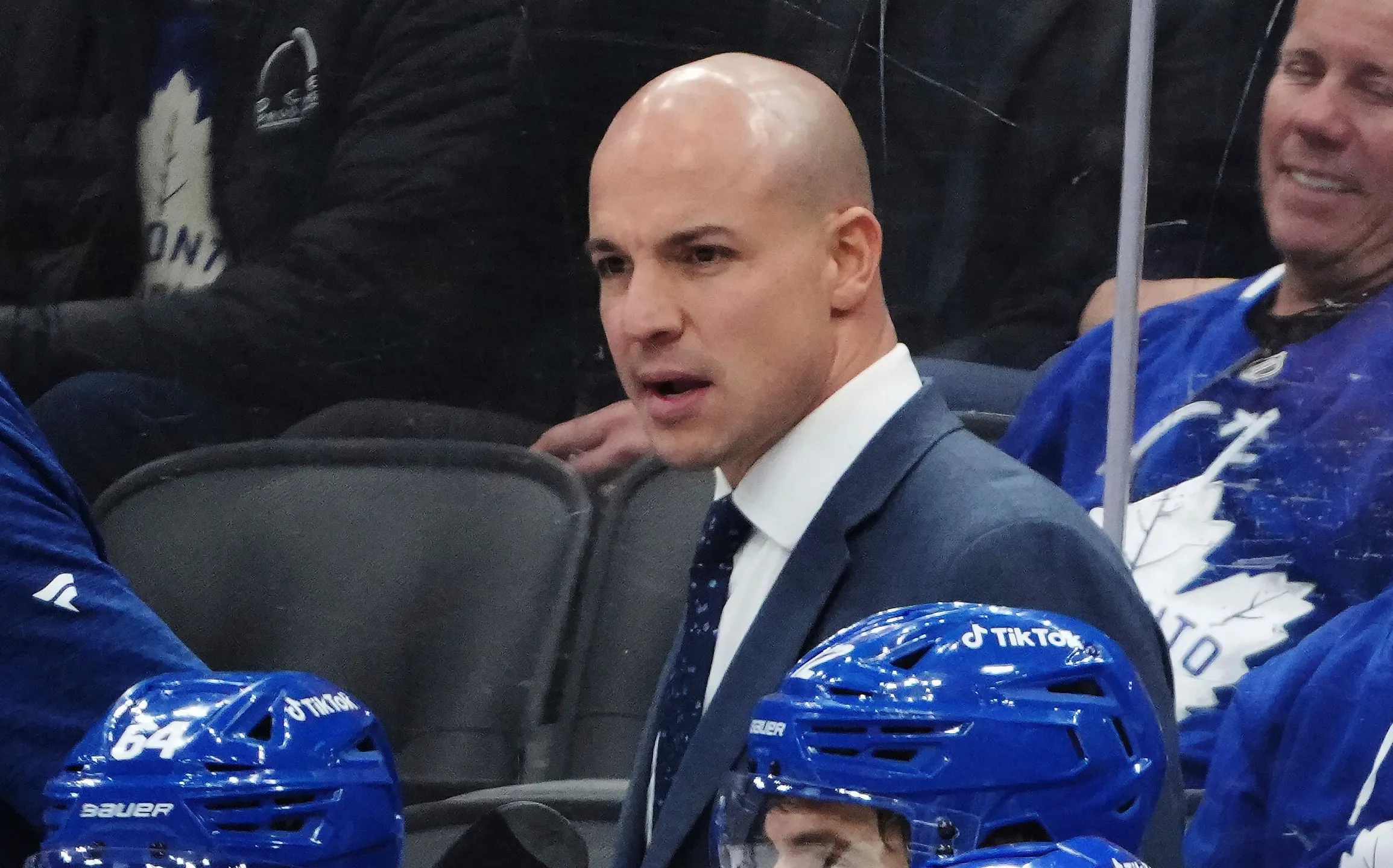Coach Spencer Carbery recently made headlines with his controversial remarks about the Utah fan base, claiming that their presence and behavior were the primary reasons his team struggled to perform at their best. His comments came after a disappointing game in which his players seemed off their usual form, leading to speculation about external factors influencing their performance.

During the post-game press conference, Carbery did not hold back his frustrations. He acknowledged that his team had not played to their full potential but shifted much of the blame onto the Utah fans, citing their intensity, noise levels, and alleged distractions as key reasons for his players’ struggles. According to him, the atmosphere created by the home crowd made it difficult for his team to focus, communicate, and execute their game plan effectively.
“The energy in this arena was overwhelming,” Carbery said. “Our guys had trouble staying composed, and it’s no secret that the fans played a big role in that. It wasn’t just the noise; it was everything—the constant pressure, the hostility, and the distractions from the stands. It took a toll on our performance.”

While home-court or home-field advantage is a widely accepted phenomenon in sports, blaming fans directly is an uncommon approach from a head coach. Many coaches acknowledge the difficulties of playing in an opponent’s stadium but often credit the home team’s execution rather than pointing fingers at the spectators. Carbery’s remarks sparked immediate backlash from both fans and analysts, with many questioning whether his team’s struggles were more about their own shortcomings than the actions of the Utah crowd.

Sports commentators were quick to dissect his comments, with some arguing that elite athletes should be able to handle a hostile environment. “It’s part of the game,” one analyst remarked. “You go into an opponent’s building knowing the fans will be against you. The best teams find a way to thrive in those moments. If Carbery’s team wasn’t able to play to their full potential, maybe the issue isn’t the fans—it’s the team itself.”
Utah supporters, meanwhile, responded with a mix of amusement and criticism. Many took to social media to mock Carbery’s comments, with some joking that they were proud to have such an impact on the opposing team. Others, however, saw his remarks as an attempt to deflect responsibility. One fan tweeted, “If our cheering and booing are enough to throw off a professional team, maybe they weren’t that good to begin with.”
The controversy also raised broader discussions about sports psychology and the mental resilience required at the highest levels of compeтιтion. While crowd influence is a real factor in sports, many believe that blaming fans for poor performance is a weak excuse. Instead, strong teams and players are expected to rise above external pressures and maintain their focus regardless of the environment. 
Carbery’s comments may also have unintended consequences for his team moving forward. By publicly admitting that the Utah crowd had such a significant impact on their play, he may have given future opponents a blueprint on how to disrupt his squad. If other teams and fan bases see that his players are particularly vulnerable to intense atmospheres, they may work even harder to create similar conditions in future matchups.
Despite the backlash, Carbery stood by his statement, later reiterating that he believed the environment had played a major role in the outcome of the game. However, he also acknowledged that his team needed to improve in handling such situations. “We have to be better, no doubt about it,” he said in a follow-up interview. “But I also think there needs to be a conversation about the impact of crowd behavior in these games. At the end of the day, we want to create a fair playing environment for both sides.”
Whether or not Carbery’s comments will have any lasting impact remains to be seen. His team will have to move past this game quickly and prove that they can handle adversity without letting external factors dictate their performance. As for Utah fans, they may have just received extra motivation to be even louder the next time Carbery and his team return.





